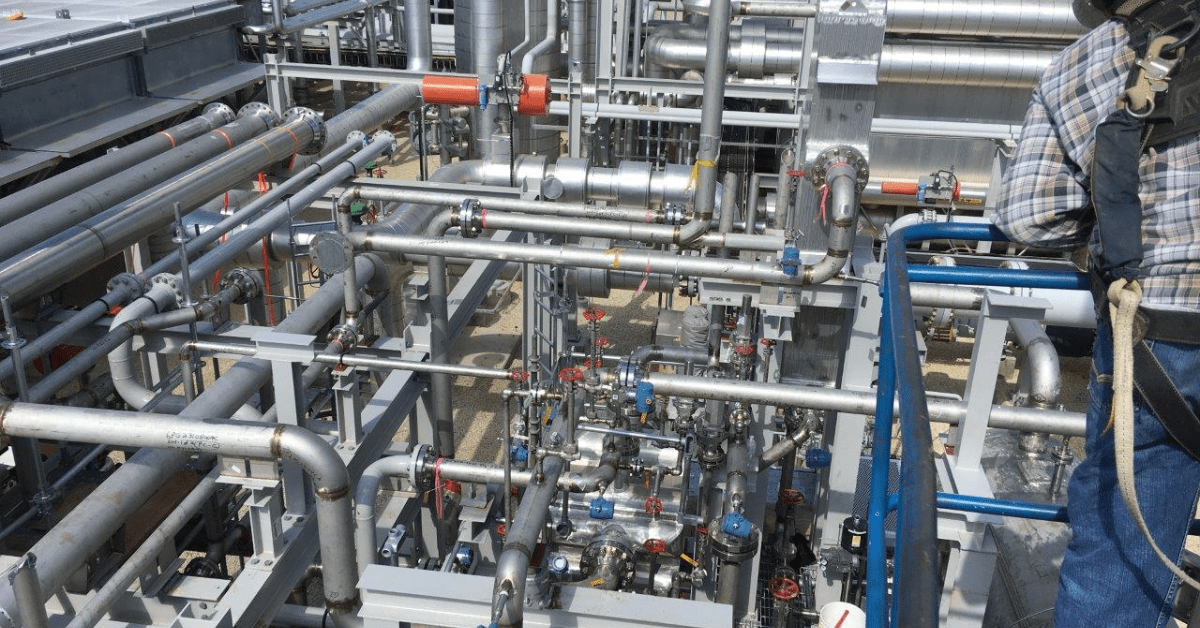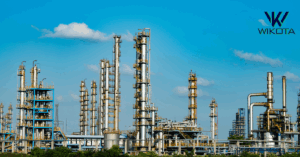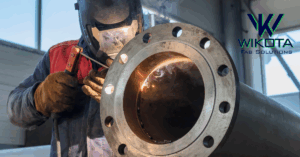The oil and gas industry operates in some of the world’s most demanding environments, requiring infrastructure and equipment that can withstand extreme conditions, high pressures, and rigorous safety standards. Oil and gas fabrication services play a crucial role in supporting this industry by providing custom-built components and structures that meet strict specifications. From pipelines and pressure vessels to offshore platforms, these fabrication services are essential for ensuring safety, efficiency, and reliability. Here’s a look at what oil and gas fabrication services entail, the importance of meeting industry standards, and how these services support the unique demands of the sector.
What Are Oil and Gas Fabrication Services?
Oil and gas fabrication services involve the custom manufacturing of equipment, structures, and components specifically designed for the exploration, production, and transportation of oil and gas. These services encompass a wide range of processes, including cutting, welding, assembling, and finishing of materials such as steel, stainless steel, and other alloys, to create durable and precise components.
Commonly Fabricated Components in Oil and Gas
– Pipelines and Flowlines: Used for transporting oil, gas, and other fluids.
– Pressure Vessels: Designed to handle high-pressure conditions, essential in refining and processing plants.
– Storage Tanks: Large, durable tanks for storing oil, gas, and refined products.
– Skids and Modules: Portable, pre-assembled units that can be transported to various sites for processing, metering, and other functions.
– Offshore Platforms: Complex structures fabricated for offshore oil drilling and extraction.
– Heat Exchangers: Used to transfer heat in processing operations, helping maintain optimal temperatures.
Each of these components is fabricated to exacting standards, ensuring they can withstand the harsh conditions and high pressures typical in oil and gas operations.
Importance of Meeting Industry Standards
The oil and gas sector is governed by strict regulations and industry standards that prioritize safety, environmental responsibility, and operational efficiency. Compliance with these standards is non-negotiable, as it ensures the integrity of fabricated components and protects both personnel and the environment. Here are some key standards that oil and gas fabrication services must meet:
- American Society of Mechanical Engineers (ASME) Standards
ASME standards, such as the ASME Boiler and Pressure Vessel Code (BPVC), provide guidelines for designing and manufacturing pressure vessels, boilers, and piping systems used in the oil and gas industry. Compliance with ASME standards is critical, as these components operate under high pressure and pose significant risks if they fail.
- American Petroleum Institute (API) Standards
The American Petroleum Institute sets a wide range of standards for the oil and gas industry, covering everything from drilling and exploration to refining and transportation. API standards ensure that fabricated components are safe, reliable, and durable. Common API standards include:
– API 650: Governs the construction of storage tanks.
– API 620: Covers design and construction of large, low-pressure storage tanks.
– API 1104: Provides standards for welding pipelines and related facilities.
- ISO Standards
The International Organization for Standardization (ISO) also provides guidelines for quality management, environmental responsibility, and health and safety in fabrication processes. ISO certifications, such as ISO 9001 for quality management and ISO 45001 for occupational health and safety, help ensure that fabrication providers follow best practices for consistency and safety.
- Occupational Safety and Health Administration (OSHA) Standards
In the United States, OSHA standards regulate workplace safety, including practices around welding, cutting, and material handling. Compliance with OSHA regulations helps ensure that workers are protected during the fabrication process, especially when handling heavy equipment or working in confined spaces.
Key Processes in Oil and Gas Fabrication Services
Oil and gas fabrication services involve a series of specialized processes that are critical to producing high-quality, compliant components. Here are some of the main processes involved:
- Cutting and Shaping
Cutting is typically the first step in fabrication, where raw materials are cut to precise sizes and shapes based on the design specifications. Techniques like CNC (Computer Numerical Control) cutting, plasma cutting, and laser cutting are commonly used to achieve accuracy.
– Precision Cutting: Ensures that each component fits perfectly within the assembly, minimizing the risk of misalignment or leaks.
– Customization: Allows for exact dimensions tailored to project requirements, ensuring compatibility with other parts of the system.
- Welding and Joining
Welding is a critical process in oil and gas fabrication, as it ensures that components are securely joined to withstand high pressures and extreme conditions. Techniques like MIG (Metal Inert Gas), TIG (Tungsten Inert Gas), and submerged arc welding (SAW) are used to create strong, reliable joints.
– Pressure Integrity: Welding is essential for components that need to maintain structural integrity under pressure.
– Quality Control: Welds are inspected and tested to ensure they meet quality and safety standards.
- Assembly and Fabrication
Assembly involves combining cut and welded components into a complete unit. This may include fitting pipes, valves, flanges, and other elements, ensuring that all parts are aligned and assembled according to the design.
– Modular Skids: Modular skid fabrication allows for pre-assembly of components on a single frame, making transportation and installation easier.
– On-Site Installation Ready: Assembled components can be delivered to the site ready for immediate installation, saving time and labor costs.
- Surface Treatment and Coating
Oil and gas components are often exposed to corrosive substances, extreme temperatures, and harsh weather conditions. To enhance durability, fabricated components undergo surface treatments and protective coatings, such as galvanizing, epoxy coating, or painting.
– Corrosion Resistance: Coatings protect against rust and corrosion, extending the life of components.
– UV and Heat Protection: Treatments help components withstand exposure to extreme temperatures and sunlight.
- Testing and Quality Assurance
Testing is essential in oil and gas fabrication to verify that components meet industry standards and project specifications. Common tests include hydrostatic pressure testing, non-destructive testing (NDT), and ultrasonic inspection.
– Leak Prevention: Hydrostatic testing ensures that pipes, vessels, and tanks are leak-free under pressure.
– Structural Integrity: Non-destructive testing methods identify internal flaws or weak points without damaging the component.
- Documentation and Certification
Finally, documentation is a key aspect of oil and gas fabrication services. Detailed records are kept for each fabricated component, including material certifications, welding reports, and test results. These documents provide a comprehensive record of compliance with industry standards, which is essential for regulatory inspections and quality assurance.
Benefits of Using Professional Oil and Gas Fabrication Services
Working with a specialized fabrication provider like Wikota offers significant advantages for oil and gas companies. Here are some of the benefits:
- Reliability and Durability
Professional fabrication services adhere to stringent standards, ensuring that each component is built to withstand the harsh conditions typical in oil and gas environments. This reliability translates to fewer breakdowns, reduced maintenance, and increased operational safety.
- Cost Efficiency
Using custom-fabricated components designed to fit specific applications reduces waste, minimizes downtime, and streamlines installation. This results in cost savings over the long term, especially in projects requiring precise, high-quality fabrication.
- Time Savings
Professional fabrication providers offer efficient turnaround times, often delivering pre-assembled and tested components ready for immediate installation. This reduces project timelines and accelerates production schedules, which is critical in a fast-paced industry like oil and gas.
- Environmental and Safety Compliance
Compliance with environmental and safety standards is crucial in oil and gas. Professional fabrication providers ensure that all components meet regulatory requirements, reducing the risk of environmental incidents and protecting personnel on-site.
- Expertise and Experience
Specialized fabrication providers bring expertise and experience to every project, using advanced techniques, equipment, and materials tailored to the oil and gas industry. This ensures that the fabrication process meets the highest quality standards.
Choosing the Right Oil and Gas Fabrication Service Provider
When selecting a fabrication service provider, consider factors like their industry experience, certification to industry standards (ASME, API, ISO), and proven track record in oil and gas projects. A reputable provider should also have a comprehensive quality control program, advanced technology, and a commitment to safety and compliance.
Look for a provider like Wikota that offers end-to-end services, from design and engineering to fabrication, testing, and documentation. This ensures that each component is fabricated to exact specifications, tested for reliability, and ready for seamless integration into your operation.
Final Thoughts
Oil and gas fabrication services are essential for creating the high-quality, durable components needed to support exploration, production, and transportation in the oil and gas industry. From pipelines and pressure vessels to storage tanks and offshore platforms, these services enable companies to meet rigorous industry standards, ensuring safety, efficiency, and environmental responsibility.
By choosing a fabrication provider that understands the unique demands of the oil and gas sector and is committed to compliance and quality, companies can achieve long-lasting reliability and performance in their operations. In an industry where safety and durability are paramount, professional oil and gas fabrication services provide the foundation for successful, compliant, and efficient operations.
Ready to power your next project? Explore our
Fabrication Services, and let’s build something strong together.
Contact us today to learn how Wikota’s Fab Shop can help with your fabrication needs.
Serving North America – We ship completed projects anywhere in the US.




